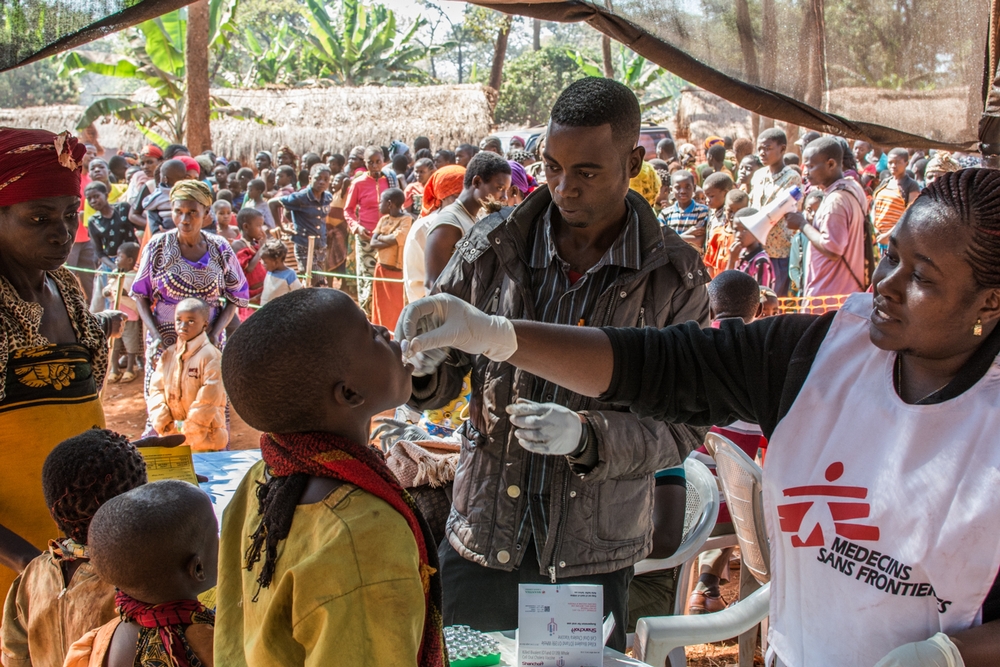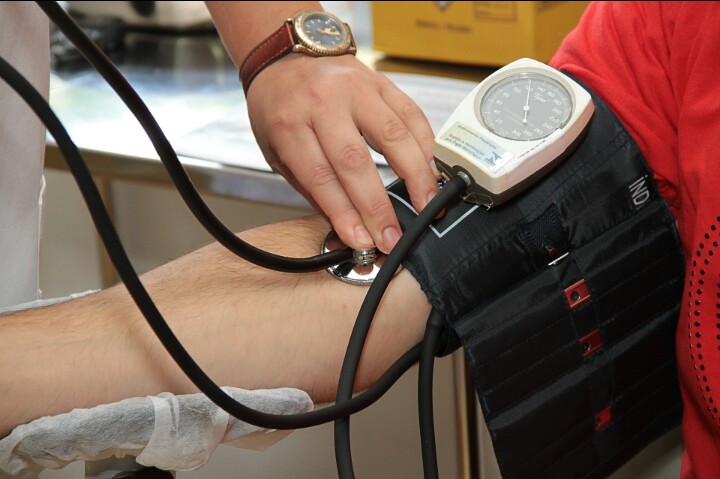Definition of Public Health
Public health is defined as the science of protecting and improving the health of people and their communities. This work is achieved by promoting healthy lifestyles, researching disease and injury prevention, and detecting, preventing and responding to infectious diseases.
What is the function of public health?
Generally, public health is concerned with protecting the health of entire populations. These populations can be as small as a local neighborhood, or as big as an entire country or region of the world. Public health professionals try to prevent problems from happening or recurring through implementing educational programs, recommending policies, administering services and conducting research in contrast to clinical professionals like doctors and nurses, who focus primarily on treating individuals after they become sick or injured. Public health also works to limit health disparities. A large part of public health is promoting healthcare equity, quality and accessibility.
From conducting scientific research to educating about health, people in the field of public health work to assure the conditions in which people can be healthy. That can mean vaccinating children and adults to prevent the spread of disease. Or educating people about the risks of alcohol and tobacco. Public health sets safety standards to protect workers and develops school nutrition programs to ensure kids have access to healthy food.
Public health works to track disease outbreaks, prevent injuries and shed light on why some of us are more likely to suffer from poor health than others. The many facets of public health include speaking out for laws that promote smoke-free indoor air and seat belts, spreading the word about ways to stay healthy and giving science-based solutions to problems.
What do public health professionals do?
Public health professionals, are trained to perform one or more of these ten essential services:
- Monitor the health status of a community to identify potential problems
- Diagnose and investigate health problems and hazards in the community
- Inform, educate, and empower people about health issues, particularly the underserved and those at risk
- Mobilize community partnerships to identify and solve health problems
- Develop policies and plans that support individual and community health efforts
- Enforce laws and regulations that protect health and ensure safety
- Link people to needed personal health services and ensure the provision of health care when otherwise unavailable
- Ensure a competent public health and personal health care workforce
- Evaluate effectiveness, accessibility, and quality of personal and population-based health services
- Research new insights and innovative solutions to health problems
Disciplines In Public Health
Public/ Community health physicians: these are qualified medical doctors who have satisfied the requirements of the post graduate medical colleges. They are important members of the public health community who are in direct contact with the patients. he primary focus is on the prevention of disease within a community, and there are numerous responsibilities that you may have within the position.
Public health Nurses: unlike their clinical counterparts who have very close relationships with individuals,(patients) public health nurses relate with the community to promote health. Public health nurses comprise the largest professional segment of the workplace in public health and are involved in the prevention, education, advocacy, activism, assessment, and evaluation of Public Health. They hold a vital role in the prevention of disease and help to promote community health and safety. For students already in a nursing program or who are already a practicing nurse, public health nursing offers a variety of opportunities to make significant changes in public health. While most nurses care for one patient at a time, public health nurses care for entire populations. The ability to work with whole communities allows public health nurses to help in educating the community about health issues to improve their health and safety and facilitate access to care.
Epidemiologist: Epidemiology is concerned with the study of health, disease distribution and control. They investigate the factors responsible for disease pattern, causation and the overall effect of disease conditions on communities. Epidemiologists are described as the cornerstone of public health practice. epidemiologists analyze health information and collect relevant data to develop awareness about the origin of sickness and disease. Their findings are then applied to a variety of venues, including the regulatory arena, private organizations and public policy.
Epidemiologists perform the following job functions:
- Plan and direct studies of public health challenges to prevent, treat and anticipate patterns of sickness and disease
- Collect and analyze data through observations, interviews and surveys, and biological samples to find the causes of sickness and disease
- Present and communicate their findings to health practitioners, policymakers, private organizations and the public
- Manage and develop public health programs, monitor their progress and see ways to optimize and innovate research techniques
- Supervise professional, technical, and medical personnel
Environmental Health Scientist: environmental health officers focus on the health of the environment. They study how hazards in water, land, or in the air negatively affect the population and the environment. Environmental health sciences professionals focus on identifying the relationships and risks of the physical environment around us on our health. They actively try to improve the public’s health addressing these environmental risk factors and putting in a concerted effort to mitigate the risks around us.
This is a wide-ranging, complex, and multifaceted profession, spanning chemistry, toxicology and engineering, among many other disciplines. While a wet-science background is appreciated it is by no means necessary to work in this field. For example, occupation health is a facet of environmental health yet does not always include chemical or toxic assessment, for example, construction workers or factory workers who work with heavy operational machinery every day. Like all public health fields, it also involves collaboration with and reliance upon other professionals, including chemists, geologists, biologists, meteorologists, physicists, physicians, engineers, human resources representatives, and even politicians.
When working in an environmental health science field you will be immersed in a “big picture” perspective of how environment and actions heavily affect our daily health. This is a good field for anyone who is interested.
Public Health Educator: when it comes to health promotion, public enlightenment and awareness creation the public health educator is the center of focus. They work to raise awareness about unhealthy lifestyles and health issues. Health educators focus on helping groups of people, from family units to large urban communities, by developing educational campaigns and programs to promote healthy habits and environments. Their duties are more research-oriented and administrative.
Unlike other community health roles, educators don’t usually work face-to-face with populations to collect information and provide counseling. Instead, public health educators analyze data about key demographics and work to create or improve health programs. This role is ideal for people who like to get a big-picture view of things and apply their problem solving abilities across broad populations. Depending on their preferred balance of advising and teaching duties, educators can choose from a number of specialized roles.
Bio-statistician: these are very important and highly revered members of the public health community because of their input in research, clinical trials and other academic related issues. Biostatisticians are said to be the specialists of data evaluation, as it is their expertise that allows them to take complex, mathematical findings of clinical trials and research-related data and translate them into valuable information that is used to make public health decisions. The work of biostatisticians is also required in government agencies and legislative offices, where research is often used to influence change at the policy-making level. In short, these professionals use mathematics to enhance science and bridge the gap between theory and practice.
Biostatisticians are required to develop statistical methods for clinical trials, observational studies, longitudinal studies, and genomics:
- Clinical trials: Studying the evaluation of treatments, screening, and prevention methods in populations
- Epidemiological: Studying the causes and origins of disease in humans
- Human Genetics: Studying the genetic differences associated with diseases and disease states
- Genomics: Studying the biological activity of genes as they relate to diseases and treatments
- Spatial Studies: Studying the geographical distribution of disease/risk factors
Social and Behavioral Scientist: social and behavioral scientists deal with public health issues related to psychology and mental health. In general, they study human action and often seeks to generalize about human behavior in society. The social and behavioral health sciences play an important role in public health policies and decisions, as the work professionals in this field do is focused on identifying and analyzing the social determinants and behavioral risk factors associated with any number of public health issues. They then use this information to better understand how to promote and achieve healthy behaviors within certain communities and populations.
Our world is constantly being driven by advances in our understanding of human behavior— socially, politically, and economically. Psychology and neuroscience have given us an increasingly complex understanding about how people think and feel, and how they make decisions. This has allowed us to better design and deliver products, services, and policies. It comes as no surprise, then, that classical approaches to areas such as finance, economics, and public policy are now being influenced by behavioral finance, behavioral economics, and behavioral public policy.
Disaster Management & Emergency Preparedness: this is a core area of specialization that is critical to human survival. Specializing in this area will entail working in organizations that prepare for and mange disaster and emergency situations when then arise. The goal of emergency preparedness is to strengthen the capacity of governments, organizations, institutions and communities to withstand a disaster or emergency situation. Emergency preparedness can be achieved through:
- national legislation and policy for disaster management
- plans and procedures for disaster management and emergency response coordination
- strengthening institutional and human resources for disaster management
- establishing and managing stocks of relief supplies and equipment
- identifying transportation options
- public education, awareness and community participation in disaster management
- collecting, analyzing and disseminating information related to emergencies and disasters that are likely to occur in the region.
Health Services Administration: this area of public health deals with issues of policy, leadership and management in the health care sector. The field of public health administration concerns itself with the administration, leadership, and management of health care systems, such as hospitals, networks, and public health systems. A Master of Public Health Administration (MPHA) graduate is classed as a health care professional. Those who hold an MPHA degree can either be generalists, who hold responsibility for the management of an entire facility; or specialists, who hold responsibility for the management of a specific department.
There are several other disciplines and sub disciplines within public health each with its unique contribution to the overall objective of protecting and promoting the health of the population. Read: Public Health Schools In Nigeria
Who is a public health inspector?
A public health inspector is a professional who inspects public establishments or areas to ensure that they meet all local, state, and federal health laws. By regularly inspecting these places and enforcing health mandates they are able to prevent infection and illness and better improve the overall health and safety of the public. As compliance officers who have the authority to issue fines and suspend business licenses, they play a key role in protecting the public from many common health threats.






